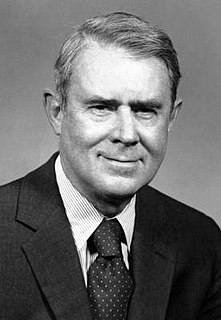A Quote by Gary Locke
We've come a long way since Nixon's first visit to China, or Carter's reestablishment of diplomatic relations.
Related Quotes
Ronald Reagan, when he was campaigning for President, said that he would break relations with Communist China and re-establish diplomatic relations with Taiwan. But when he got into office, he pursued a very different policy of engagement with China and of increasing trade and business ties with China.
In 2006, I became the fist American to be allowed to go visit their astronaut center in China in Beijing. I think that it makes sense for the U.S. to work with China in the future and I hope to see, if the political atmosphere between the United States and China allow for us to do more cooperation together, especially in the area of human space flight. I think in the same way that it's help improve the relations between the U.S. and Russia; it would help to improve the relations between the U.S. and China.
Burma is located between China, India, and South East Asia. So it is quite natural that a country wanting diplomatic relations with our country would pay attention to who our regional neighbors are. It is not at all fair to ask a country to build relations with Burma but not take into account the situation in China. There is no way to think that taking the Chinese situation into consideration shows a disregard for Burma.
One wonders if Lyndon Johnson and Richard Nixon's administrations may come to be viewed, in the future, as having been underestimated in some respects. To be sure, each ended in failure. Nonetheless, Johnson's accomplishments in civil rights and immigration legislation, and Nixon's in respect to relations with China, may loom larger with the passage of time.
As for these 60 years, and in general more than a hundred years, we have had different periods in relations and there have been tragic pages in our history, but since 1956 when we restored diplomatic relations, regrettably, we have not had a foundation on which to build ties that would correspond to our wishes and that are currently required in bilateral cooperation with Japan.
Every time there has been an attempt to disturb it, it led to two things. It led to immediate intense conflict with China, and it led to a reaffirmation in the end, because nobody wanted a major confrontation with China to this principle of a "one China" policy within which Taiwan is finding a place now. Its own position has greatly improved since the Nixon policy. It is richer, it is stronger and it is participating in many international organizations.
Really, an historic night last night. You may have heard, Barack Obama will be the first black president of the United States of America. ... Obama is also the first Democrat to receive more than 50 percent of the vote since Jimmy Carter, the first senator to be elected since Jack Kennedy, the first Muslim to be ... I said too much.































